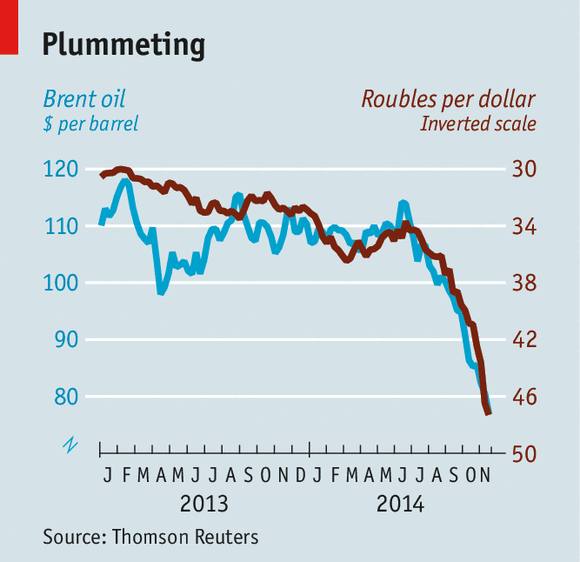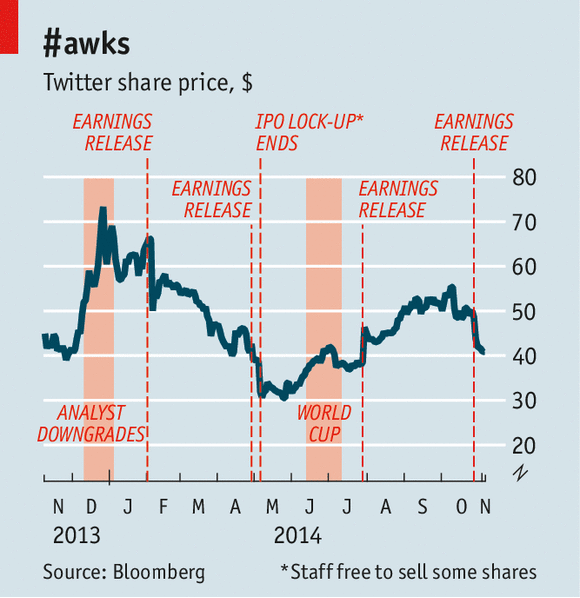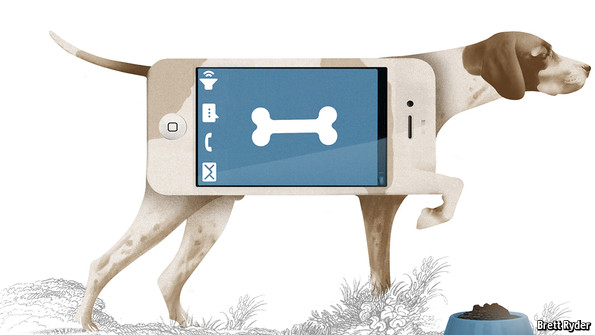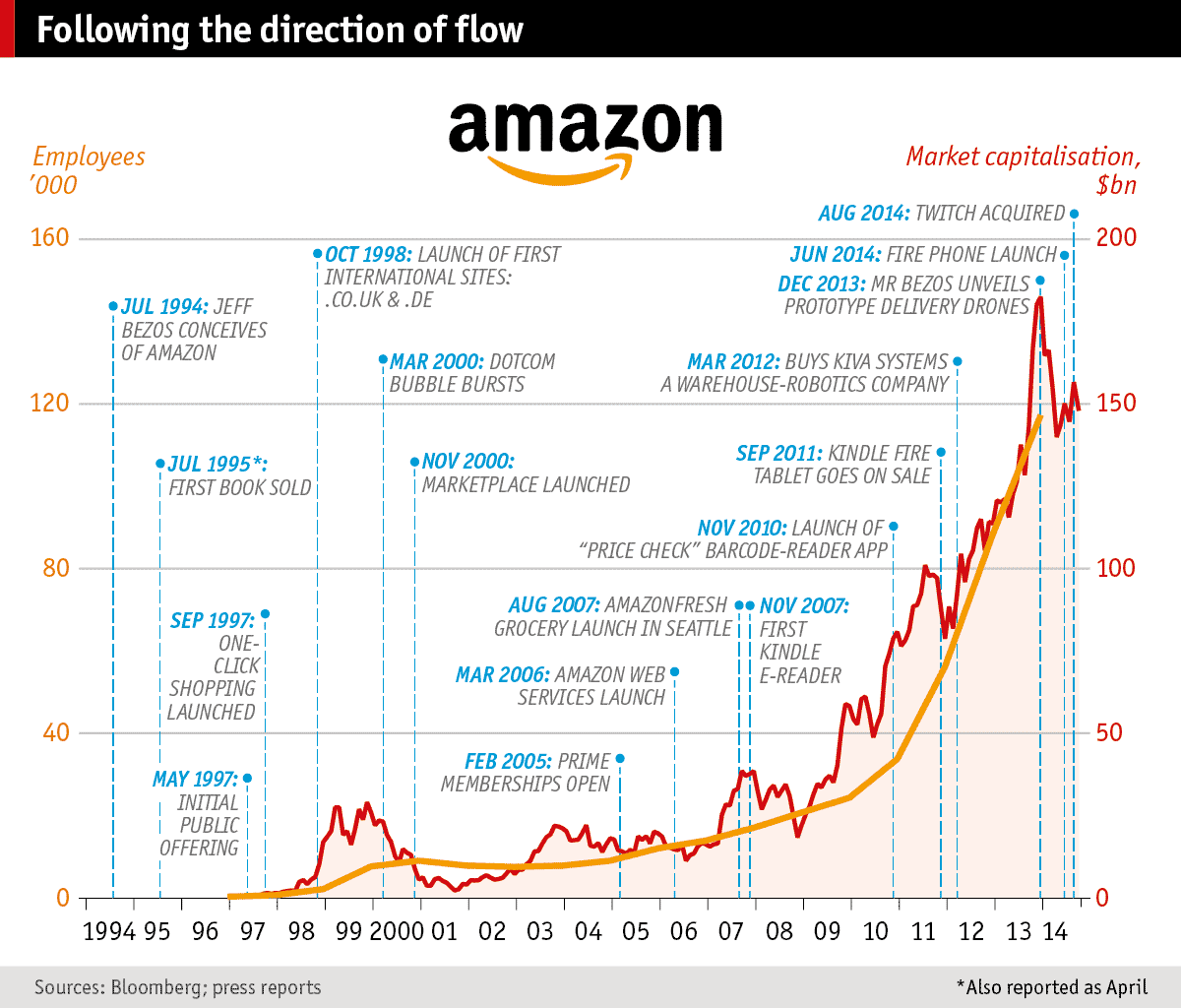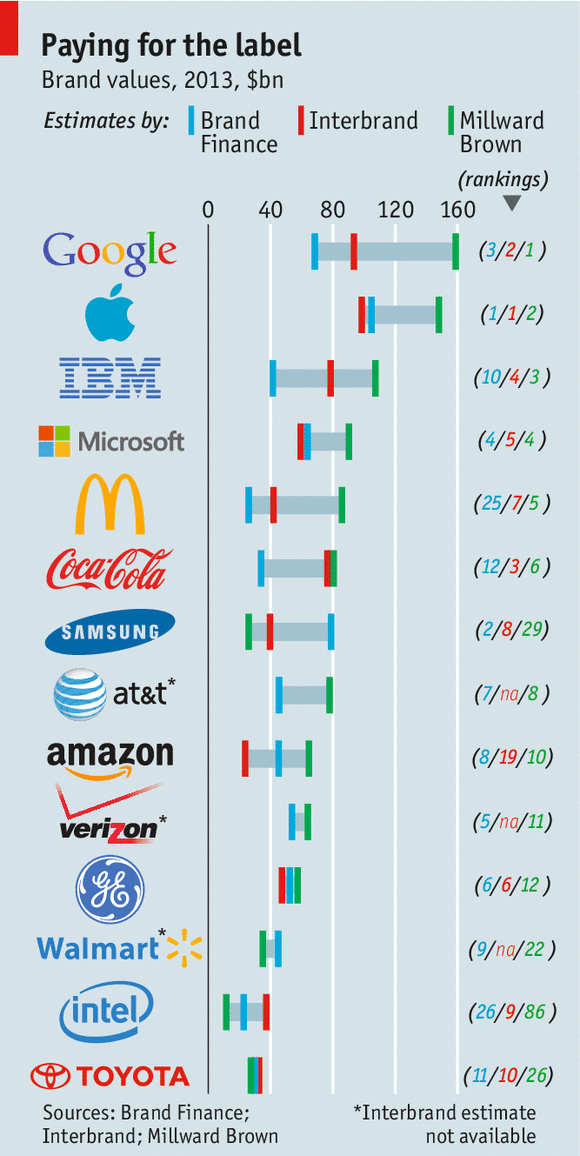
Saturday, December 13, 2014
Friday, December 12, 2014
Saturday, November 22, 2014
Football and social media - by Simon Kuper
http://www.ft.com/intl/cms/s/2/7593cd8c-7041-11e4-bc6a-00144feabdc0.html#axzz3JmY8V1Tg

The world’s major clubs are fixated on using social media to turn the love of millions of fans into serious money

The world’s major clubs are fixated on using social media to turn the love of millions of fans into serious money
Thursday, November 20, 2014
Wednesday, November 19, 2014
Saturday, November 15, 2014
Thursday, November 6, 2014
Russian media firms - Interesting news
http://www.economist.com/news/business/21631057-clampdown-foreign-owned-media-opportunity-some-oligarchs-interesting-news
It is not just news outlets that are threatened by the media law. Foreign publishers of glossy magazines, such as Hearst and Condé Nast, will also have to shut them or sell to a local buyer at depressed prices. This amounts to a “blatant appropriation of property,” according to Derk Sauer, a Dutch investor who founded Vedomosti in 1999. Of course, Mr Putin will be able to point out that many countries, America included, restrict foreign ownership of some media. But in a sign of how rushed and emotive the passage of the law was, it will undo an investment the Russian leader celebrated with great fanfare not long ago: in 2011 Disney spent $300 million on a 49% stake in a Russian television channel, a deal that will now have to be undone.
Thursday, October 30, 2014
Other industries have a lot to learn from Hollywood
http://www.economist.com/news/business/21629377-other-industries-have-lot-learn-hollywood-creative-capitalism
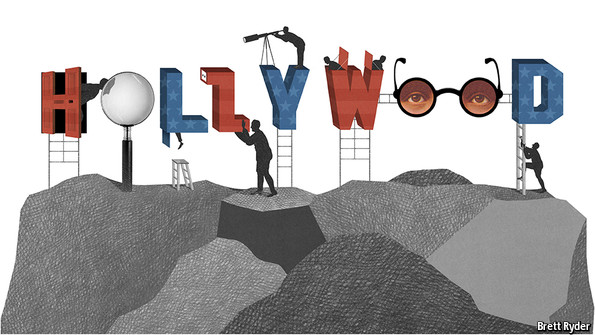
Perhaps Hollywood’s most remarkable skill is in launching brands that achieve global prominence in a matter of days. Each film is a separate product that needs its own marketing, and the stakes are incredibly high: if it has not gained sufficient momentum by its opening weekend, it may sink without trace. Studios spend vast sums on promotional campaigns, often as much as they spend on producing the film itself. Businesses that are sceptical about the value of marketing, and about the possibilities for creating consumer awareness rapidly, should look closely at how Hollywood manages to come up with new brands on a near-weekly basis. The key is to treat the marketing as a core part of the project, rather than as an afterthought.

Perhaps Hollywood’s most remarkable skill is in launching brands that achieve global prominence in a matter of days. Each film is a separate product that needs its own marketing, and the stakes are incredibly high: if it has not gained sufficient momentum by its opening weekend, it may sink without trace. Studios spend vast sums on promotional campaigns, often as much as they spend on producing the film itself. Businesses that are sceptical about the value of marketing, and about the possibilities for creating consumer awareness rapidly, should look closely at how Hollywood manages to come up with new brands on a near-weekly basis. The key is to treat the marketing as a core part of the project, rather than as an afterthought.
Friday, October 17, 2014
Friday, October 10, 2014
Saturday, September 20, 2014
Free U2 album: How the most generous giveaway in music history turned into a PR disaster
http://www.independent.co.uk/arts-entertainment/music/features/free-u2-album-how-the-most-generous-giveaway-in-music-history-turned-into-a-pr-disaster-9745028.html
 Marco Arment, a former executive at Tumblr and a technology developer, said: “The damage here isn’t that a bunch of people need to figure out how to delete an album that they got for free and are now whining about. It’s that Apple did something inconsiderate, tone-deaf, and kinda creepy for the sake of a relatively unimportant marketing campaign, and they seemingly didn’t think it would be a problem.”
Marco Arment, a former executive at Tumblr and a technology developer, said: “The damage here isn’t that a bunch of people need to figure out how to delete an album that they got for free and are now whining about. It’s that Apple did something inconsiderate, tone-deaf, and kinda creepy for the sake of a relatively unimportant marketing campaign, and they seemingly didn’t think it would be a problem.”
 Marco Arment, a former executive at Tumblr and a technology developer, said: “The damage here isn’t that a bunch of people need to figure out how to delete an album that they got for free and are now whining about. It’s that Apple did something inconsiderate, tone-deaf, and kinda creepy for the sake of a relatively unimportant marketing campaign, and they seemingly didn’t think it would be a problem.”
Marco Arment, a former executive at Tumblr and a technology developer, said: “The damage here isn’t that a bunch of people need to figure out how to delete an album that they got for free and are now whining about. It’s that Apple did something inconsiderate, tone-deaf, and kinda creepy for the sake of a relatively unimportant marketing campaign, and they seemingly didn’t think it would be a problem.”Friday, September 12, 2014
Thursday, August 28, 2014
Friday, June 6, 2014
Television in Brazil - Globo domination

Because Brazil has lagged media trends in rich countries, Globo has been able to watch foreign firms’ mistakes “so we don’t have to make them”, says Roberto Irineu Marinho, the group’s boss. But internet use has taken off in Brazil, and will alter consumers’ viewing habits over time. Today Brazil has more mobile phones than it has people, and penetration of pay-television has slowly crept up to around 28% of households. In April Brazilians spent around 12.5 hours a week on online social networks from their desktop computers, more than double the global average, according to comScore, a research firm. For the first time in Globo’s history it is facing serious competition for advertisers and audience. Increasingly, Brazil’s advertising market will be a contest between the two Gs: Globo and Google.
Ad break: World Cup adverts starring Chilean miners and Sun footballers
http://www.theguardian.com/media/2014/jun/05/ad-break-world-cup-adverts-chilean-miners-the-sun
Watch two very different campaigns giving national teams a rousing send-off in our review of new advertising work
Viral Video Chart: Doctor Who, Frozen, Stephen King and the World Cup
http://www.theguardian.com/media/2014/jun/06/digital-media-internet
1. Doctor Who Parody by The Hillywood Show
Time-warped
1. Doctor Who Parody by The Hillywood Show
Time-warped
2. Brozen
In synch
In synch
3. TV's Greatest Catchphrases (Supercut)
Says who?
Says who?
4. Sing-a-long a drunk pensioner on a train
Off the rails
Off the rails
5. This is what happens when an engineer owns a dog
Having a ball
Having a ball
7. The Craig Federighi Show ♫ | WWDC 2014: The Musical | Song A Day #1979
Core of Apple's message
Core of Apple's message
8. Solar FREAKIN' Roadways!
Shining ideas
Shining ideas
9. Paper Airplane launched from top of stadium hits player! LMAO [England vs Peru] [RAW FOOTAGE]
Darting about
Darting about
10. Plane almost lands on sunbather on beach - Fails landing
Close shave
Close shave
Source: Viral Video Chart. Compiled from data gathered at 14:00 on 5 June 2014. The Viral Video Chart is currently based on a count of the embedded videos and links on approximately 2m blogs, as well as Facebook and Twitter.
Thursday, June 5, 2014
It's official: Nike rhymes with spiky - and you're saying all these wrong too
http://www.theguardian.com/media/shortcuts/2014/jun/03/nike-how-to-pronounce-correctly-brand-names-audi-adidas-porsche-yvessaintlaurent
From Audi and Adidas to Porsche and Yves Saint Laurent, here's a quick and easy guide to how you should be saying corporate brand names

From Audi and Adidas to Porsche and Yves Saint Laurent, here's a quick and easy guide to how you should be saying corporate brand names

Wednesday, June 4, 2014
Monday, June 2, 2014
Modern family: can marketers catch up with culture?
http://www.theguardian.com/media-network/media-network-blog/2014/jun/02/modern-family-television-marketers-diversity
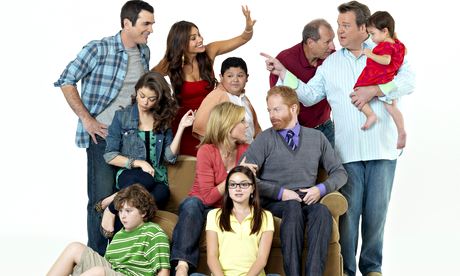
Around the globe, we're witnessing an explosion of new family structures. In the US, cohabitation has doubled since 1990 and 41% of births are to unmarried women. Twice as many Britons have mixed-ethnic parentage compared with a single ethnic background. And in Australia, nearly half of same-sex couples are raising two or more children. As USA Today said: "Whatever a traditional family used to be, it is no longer."

Around the globe, we're witnessing an explosion of new family structures. In the US, cohabitation has doubled since 1990 and 41% of births are to unmarried women. Twice as many Britons have mixed-ethnic parentage compared with a single ethnic background. And in Australia, nearly half of same-sex couples are raising two or more children. As USA Today said: "Whatever a traditional family used to be, it is no longer."
Friday, May 30, 2014
Viral Video Chart: Barack Obama, Novak Djokovic and Will Ferrell
http://www.theguardian.com/media/2014/may/30/barack-obama-noval-djokovic-will-ferrell
1. BBC Breakfast | Happy
Sunny side up
Sunny side up
2. French open in the rain with Novak Djokovic
Brolly volley
Brolly volley
3. Will Ferrell and Chad Smith Drum-Off
Beat that
Beat that
4. South Downs National park Rave up
Unexpected trip
Unexpected trip
5. Bill Murray Crashes Bachelor Party, Advises Groom
Bill's secret for happiness
Bill's secret for happiness
6. Matt Smith Impression
Doctor Who's that?
Doctor Who's that?
7. Michael Jackson - Slave To The Rhythm
Jacko backo
Jacko backo
8. Raw Video: The President Takes a Surprise Walk
Obama care
Obama care
9. Aug(De)Mented Reality
Quite a draw
Quite a draw
10. What a dance by a chubby Korean baby!
Cute tot
Cute tot
Source: Viral Video Chart. Compiled from data gathered at 14:00 on 29 May 2014. The Viral Video Chart is currently based on a count of the embedded videos and links on approximately 2m blogs, as well as Facebook and Twitter.
Ad break: Nigel Farage proclaims love for Europe, Lionel Messi for Adidas
http://www.theguardian.com/media/2014/may/29/ad-break-nigel-farage-europe-lionel-messi-adidas-world-cup
See the Ukip leader's speeches mashed up in a cheeky viral campaign and a World Cup ad starring the Argentinian striker
See the Ukip leader's speeches mashed up in a cheeky viral campaign and a World Cup ad starring the Argentinian striker
Thursday, May 29, 2014
Virtual reality and wearable technology offer opportunities for retailers
http://www.theguardian.com/media-network/media-network-blog/2014/may/28/virtual-reality-wearable-technology-retail-google

While we can't be sure what will happen in a post-mobile world, or which manufacturer will prevail, we can make educated predictions about what the next generation of devices could signify for retail. Perhaps they will imply a closer relationship between wearer and retailer, increase convenience but also increase potential for annoyance. Of the utmost importance is that they could fundamentally change some of the ways people shop.

While we can't be sure what will happen in a post-mobile world, or which manufacturer will prevail, we can make educated predictions about what the next generation of devices could signify for retail. Perhaps they will imply a closer relationship between wearer and retailer, increase convenience but also increase potential for annoyance. Of the utmost importance is that they could fundamentally change some of the ways people shop.
Wednesday, May 28, 2014
10 ways that driverless cars will change the world
http://www.telegraph.co.uk/technology/google/10860036/Ten-ways-that-driverless-cars-will-change-the-world.html
 Google has unveiled a cute driverless car with a top speed of 25mph. It may not look it, but this tiny machine is going to change your life. Matthew Sparkes explains how
Google has unveiled a cute driverless car with a top speed of 25mph. It may not look it, but this tiny machine is going to change your life. Matthew Sparkes explains how
 Google has unveiled a cute driverless car with a top speed of 25mph. It may not look it, but this tiny machine is going to change your life. Matthew Sparkes explains how
Google has unveiled a cute driverless car with a top speed of 25mph. It may not look it, but this tiny machine is going to change your life. Matthew Sparkes explains howThe art of adverts: How social media is changing the way companies speak to consumers
http://www.independent.co.uk/news/media/advertising/the-art-of-adverts-how-social-media-is-changing-the-way-companies-speak-to-consumers-9442415.html

The Business Insider website had visited the offices of Huge, a digital design and advertising agency in New York of the sort that now also crowds London. As social media have become an easy and affordable means of reaching giant audiences, companies employ experts to run their Twitter, Facebook and Instagram accounts.

The Business Insider website had visited the offices of Huge, a digital design and advertising agency in New York of the sort that now also crowds London. As social media have become an easy and affordable means of reaching giant audiences, companies employ experts to run their Twitter, Facebook and Instagram accounts.
Président, a French brand trying to roll into a cheese wasteland (America), depends on Huge to get the word out about Camembert and its optimal serving temperature. But before anyone posted the tweet, it reportedly passed through several layers of project managers, strategists, copywriters and designers in a process that took a month and a half.
Tuesday, May 27, 2014
Public Apathy Plays Into Kremlin Propaganda
http://www.themoscowtimes.com/opinion/article/public-apathy-plays-into-kremlin-propaganda/500915.html
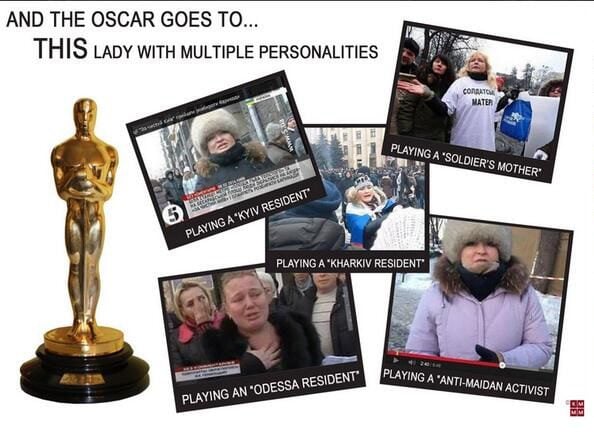
What is surprising is that, despite the fact that more than 50 percent of the population now has Internet access, many people continue to get their news from television. In fact, not only do people get their news from television, but they form their worldview based on what they see on the screen.

What is surprising is that, despite the fact that more than 50 percent of the population now has Internet access, many people continue to get their news from television. In fact, not only do people get their news from television, but they form their worldview based on what they see on the screen.
The real problem with Russia is not that five state-controlled television channels have brainwashed the population with lies and propaganda, or that Putin eliminates all major independent and opposition media the moment they gain popularity. The problem with today's Russia is that the people do not demand the truth.
Magazine chiefs urge industry change from burning platform to growth
http://www.theguardian.com/media/2014/may/25/magazine-change-digital-job-cuts
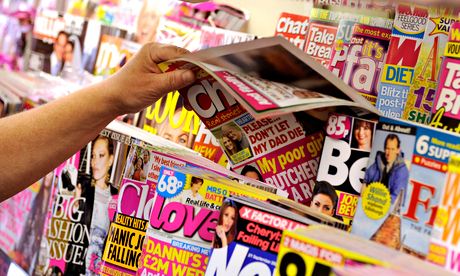
Rich believes the rise of innovations, such as programmatic advertising, the clever use of software to buy digital ad space more efficiently, mark a new era of opportunity. "I really think this is our time, in the world of big data and programmatic advertising," he said. "Really smart marketers are talking about small data, insight and deeply engaged audiences. In a nutshell we do that better than anyone else."

Rich believes the rise of innovations, such as programmatic advertising, the clever use of software to buy digital ad space more efficiently, mark a new era of opportunity. "I really think this is our time, in the world of big data and programmatic advertising," he said. "Really smart marketers are talking about small data, insight and deeply engaged audiences. In a nutshell we do that better than anyone else."
Monday, May 26, 2014
Popular Demand - US Media in Numbers
http://www.nytimes.com/interactive/2014/05/26/business/media/25most.html?ref=media&_r=0
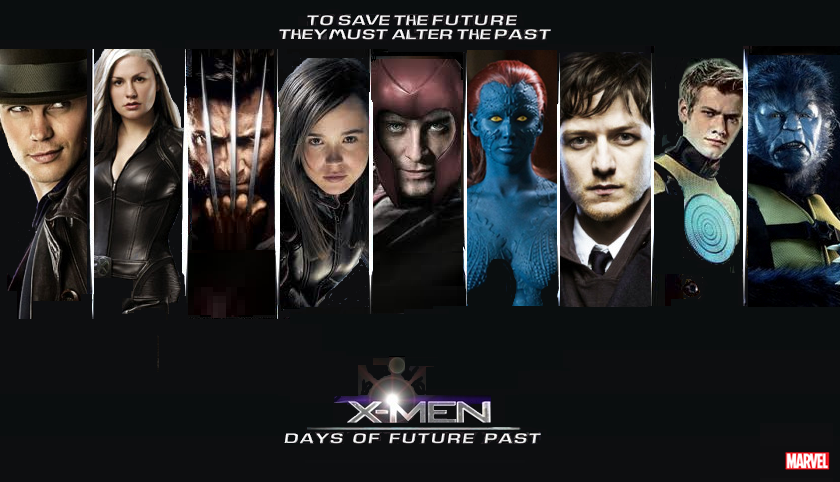

Television still dominates the information landscape, with average weekly viewing by adults topping 27 hours. Usage holds across all ages, at 98 percent for 35-to-54-year-olds and those 55 and older, and 95 percent for people 18 to 24.
Saturday, May 24, 2014
The threat facing online comments
http://www.ft.com/intl/cms/s/2/9c0cf256-e197-11e3-b7c4-00144feabdc0.html#axzz32cxOPitq


The judgment also says that if a commercial website allows anonymous comments, it is both “practical” and “reasonable” for it to be held legally responsible for the contents of those comments.
In January, responding to the implications of this ruling, a group of media organisations, internet companies, human rights groups and academic institutions sent an open letter to Dean Spielmann, a 51-year-old judge and president of the ECtHR, warning that the judgment could lead to “serious adverse repercussions for . . . democratic openness in the digital era”. The 69 signatories included Google, Guardian News and Media, the Daily Beast, PEN International, and the World Association of Newspapers and News Publishers (of which the Financial Times is a member).
Why Europe works - By Simon Kuper
http://www.ft.com/intl/cms/s/2/51dd9432-db03-11e3-8273-00144feabdc0.html#axzz32cxOPitq

Most inspiringly of all, as Kiev’s “Euromaidan” protests showed, western Europe has become a beacon to less happy countries. The post-communist era could have gone horribly wrong. After 1989, eastern Europe’s ex-communist countries could choose among various models to follow – including some nasty populist ones. Few of these countries had a democratic tradition. But those closest to the EU chose the European model. From 1995 to 2013, the world’s fastest-growing middle-income economies were the Baltic states, Poland and Slovakia, says Marcin Piatkowski, the World Bank’s senior economist in Warsaw. These countries grew faster even than South Korea, Singapore and Hong Kong. That was mostly because they looked at the EU, saw what they wanted to be and set about getting there fast. They copied European laws, and got billions in EU funds after joining the union in 2004. Now Europe can inspire Ukraine, Tunisia and Turkey after Erdogan.

Most inspiringly of all, as Kiev’s “Euromaidan” protests showed, western Europe has become a beacon to less happy countries. The post-communist era could have gone horribly wrong. After 1989, eastern Europe’s ex-communist countries could choose among various models to follow – including some nasty populist ones. Few of these countries had a democratic tradition. But those closest to the EU chose the European model. From 1995 to 2013, the world’s fastest-growing middle-income economies were the Baltic states, Poland and Slovakia, says Marcin Piatkowski, the World Bank’s senior economist in Warsaw. These countries grew faster even than South Korea, Singapore and Hong Kong. That was mostly because they looked at the EU, saw what they wanted to be and set about getting there fast. They copied European laws, and got billions in EU funds after joining the union in 2004. Now Europe can inspire Ukraine, Tunisia and Turkey after Erdogan.
Friday, May 23, 2014
The Economist’s ad man - Ad-mirable

DAVID ABBOTT, who died on May 17th, was a creative genius with principles. His advertising agency, Abbott Mead Vickers, refused to do campaigns for tobacco or toys. In 1984, when a small but ambitious British newspaper invited him to design its ads, he had to be talked into it. But the campaign he devised, featuring white letters on a plain red background, captured the essence of the product’s appeal simply and memorably. The first poster ran: “‘I never read The Economist.’ Management trainee. Aged 42.” The campaign was hugely successful. Thanks, from a grateful client.
The New York Times ponders the bold changes needed for the digital age
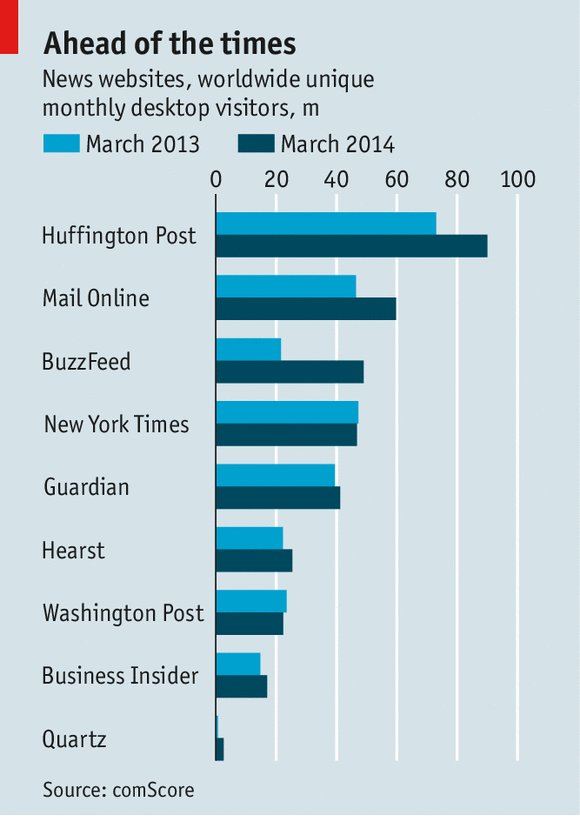
Nearly 60% of those reading Times articles now do so on smartphones and tablets, often receiving them via Twitter, Facebook and other social networks, search engines and apps. That means fewer of them encounter the full package of reading that editors so painstakingly put together. Traffic to the Times’s home-page has fallen by half from its peak in 2011; only a third of readers of Times articles ever visit it. This makes it a lot harder to persuade them to consume a broader range of the paper’s content, and to charge them for it.
Other newspapers regard the Times as a farsighted digital pioneer. It now claims 760,000 digital subscribers, and in recent months it has completed a sleek online makeover and launched new mobile apps. So if the Times is anxious, they should be too. The authors of its internal review are right to worry about losing readers. It is true that some of its new rivals barely make money, and others, such as Business Insider and Quartz, are believed to be losing it, whereas last year the Times had more than $150m in profits. But the times are changing fast and the Times must change with them.
Viral Video Chart: Jennifer Lopez, David Guetta parody and Star Wars
http://www.theguardian.com/media/2014/may/23/jennifer-lopez-david-guetta-star-wars
1. When will the bass drop? (ft. Lil Jon)
Guetta parody
Guetta parody
2. Barry from Watford calls Iain Lee about Blue Badge Holders
This takes the biscuit
This takes the biscuit
3. Amazing street hack
App-oplectic
App-oplectic
4. Amazing jam session - Three random guys sing together
The power of music
The power of music
5. Girlfriend Proposes To Her Boyfriend (Jamich Proposal)
Tissues at the ready
Tissues at the ready
6. Talent Rally Highlights 2014
Wacko Jacko
Wacko Jacko
7. Marvel's Guardians of the Galaxy - Trailer 2 (OFFICIAL)
Marvel-ous fun
Marvel-ous fun
8. Star Wars: Force for Change - A Message from J.J. Abrams
Making space for charity
Making space for charity
Source: Viral Video Chart. Compiled from data gathered at 14:00 on 22 May 2014. The Viral Video Chart is currently based on a count of the embedded videos and links on approximately 2m blogs, as well as Facebook and Twitter.
Ad break: Keith Lemon in Hooch, Hugh Jackman in X-Men Days of Future Past
http://www.theguardian.com/media/2014/may/22/ad-break-keith-lemon-hooch-hugh-jacman-x-men-days-future-past
Watch the Celebrity Juice star try to revive the alcopop's fizz and James McAvoy, Jimmy Carr and more in a Channel 4 promo
Watch the Celebrity Juice star try to revive the alcopop's fizz and James McAvoy, Jimmy Carr and more in a Channel 4 promo
Thursday, May 22, 2014
Starstruck or star-crossed? Leveraging celebrities in strategic marketing
http://www.economistgroup.com/leanback/consumers/celebrity-branding-starstruck-or-star-crossed/
 One of the biggest problems in the world of celebrity branding is that marketers engage superstars like Beckham to build awareness, but fail to consider celebrity influence in more focused ways at other stages of the consumer decision-making process. Why stop at brand awareness when the power of Lady Gaga, Justin Bieber and Katy Perry can increase active product evaluation or consumer loyalty?
One of the biggest problems in the world of celebrity branding is that marketers engage superstars like Beckham to build awareness, but fail to consider celebrity influence in more focused ways at other stages of the consumer decision-making process. Why stop at brand awareness when the power of Lady Gaga, Justin Bieber and Katy Perry can increase active product evaluation or consumer loyalty?
 One of the biggest problems in the world of celebrity branding is that marketers engage superstars like Beckham to build awareness, but fail to consider celebrity influence in more focused ways at other stages of the consumer decision-making process. Why stop at brand awareness when the power of Lady Gaga, Justin Bieber and Katy Perry can increase active product evaluation or consumer loyalty?
One of the biggest problems in the world of celebrity branding is that marketers engage superstars like Beckham to build awareness, but fail to consider celebrity influence in more focused ways at other stages of the consumer decision-making process. Why stop at brand awareness when the power of Lady Gaga, Justin Bieber and Katy Perry can increase active product evaluation or consumer loyalty? The terrifying new McDonald's mascot – and other creepy corporate monsters
http://www.theguardian.com/media/shortcuts/2014/may/20/terrifying-mcdonalds-mascot-creepy-corporate-monsters

You can see where these people are coming from. But Happy is in good company. Mascots are often terrifying. They are all Frankenstein's monsters, in one way or other, the alter ego of a brand, an event, a campaign. There is always a sense of someone else hidden inside the suit. That is scary. And they want to make you like them just a little bit too much. So don't panic, Happy, here are some equally creepy playmates for you

You can see where these people are coming from. But Happy is in good company. Mascots are often terrifying. They are all Frankenstein's monsters, in one way or other, the alter ego of a brand, an event, a campaign. There is always a sense of someone else hidden inside the suit. That is scary. And they want to make you like them just a little bit too much. So don't panic, Happy, here are some equally creepy playmates for you
How O.J.Simpson Killed Popular Culture - Vanity Fair

http://www.vanityfair.com/society/2014/06/oj-simpson-trial-reality-tv-pop-culture
Wednesday, May 21, 2014
Rotten Apple? British public loses faith with tech giant's retail arm
http://www.independent.co.uk/life-style/gadgets-and-tech/news/rotten-apple-british-public-loses-faith-with-tech-giants-retail-arm-9405908.html
Top 20 shops: How they rated
1 Lush (83%)
2 Disney Store (82%)
3 Richer Sounds (81%)
4 John Lewis (80%)
5 Waterstones (80%)
6= Clarks (79%)
6= JoJo Maman Bébé (79%)
6= Lakeland (79%)
6= Screwfix (79%)
10 White Stuff (78%)
11= Bonmarché (77%)
11= The Perfume Shop (77%)
13 Apple (76%)
14= Independent electricals (75%)
14= Jones Bootmaker (75%)
14= Maplin (75%)
14= Sony Centre (75%)
18 Dunelm Mill (74%)
19 Wilkinson (74%)
20= Early Learning Centre (73%)
20= The Body Shop (73%)
Google overtakes Apple as world's most valuable brand
http://www.telegraph.co.uk/technology/google/10844575/Google-overtakes-Apple-as-worlds-most-valuable-brand.html
BrandZ Top 20 Most Valuable Global Technology Brands 2014
RANK
|
BRAND
|
BRAND VALUE 2014 ($M)
|
BRAND VALUE CHANGE
|
RANK 2013
|
|---|
| 1 | 158,843 | +40% | 2 | |
| 2 | Apple | 147,880 | -20% | 1 |
| 3 | IBM | 107,541 | -4% | 3 |
| 4 | Microsoft | 90,185 | +29% | 4 |
| 5 | Tencent | 53,615 | +97% | 6 |
| 6 | SAP | 36,390 | +6% | 5 |
| 7 | 35,740 | +68% | 8 | |
| 8 | Baidu | 29,768 | +46% | 9 |
| 9 | Samsung | 25,892 | +21% | 7 |
| 10 | Oracle | 20,913 | +4% | 10 |
| 11 | HP | 19,469 | +19% | 12 |
| 12 | Accenture | 18,105 | +10% | 11 |
| 13 | Siemens | 16,800 | +36% | 14 |
| 14 | Yahoo! | 14,174 | +44% | 16 |
| 15 | 13,837 | N/A | NEW | |
| 16 | Cisco | 13,710 | +16% | 15 |
| 17 | 12,407 | N/A | NEW | |
Subscribe to:
Posts (Atom)

